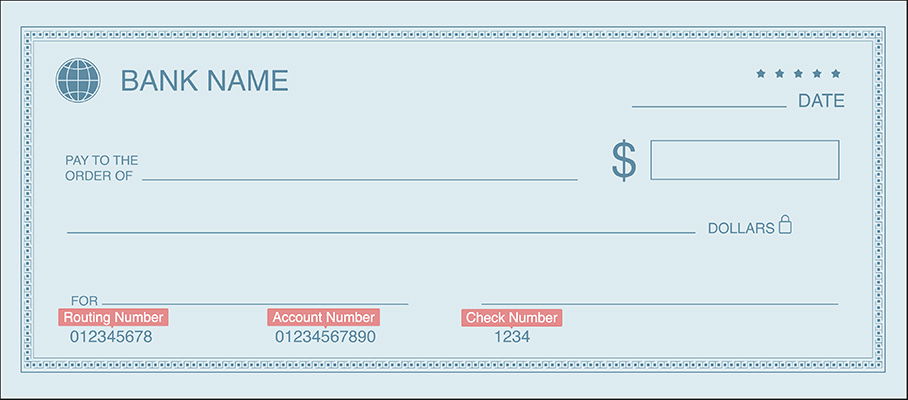If you’ve been sued over a debt, your wages—or even your bank account—could be on the line. But not all accounts are fair game, and knowing how to protect your money can make a big difference.

Some types of accounts are off-limits to creditors. Others can be shielded if you set them up correctly. Here’s how to open a bank account that creditors can’t touch, and what you can do if you’re worried about garnishment.
How Creditors Can Legally Access Your Money
If a creditor sues you and wins, they can get a court order to take money directly from your income or bank account. This is how garnishment works, and it’s more common than most people realize.
The two main types of garnishment are wage garnishment and bank levies. With wage garnishment, a creditor takes a portion of your paycheck until the debt is paid. A bank levy, on the other hand, freezes the funds in your bank account and allows the creditor to withdraw what you owe.
Laws vary by state, but in most cases, creditors must go through the courts before they can touch your money. That means you’ll usually receive legal notice before any garnishment begins. However, once a judgment is in place, creditors can act quickly—so it’s important to know which types of accounts may be protected.
Accounts That Offer Built-In Protection
Some accounts are harder for creditors to reach. In certain situations, federal or state laws limit what can be taken, especially when the money in your account comes from protected sources or belongs to more than one person.
Here’s a breakdown of account types that may offer extra protection.
Government Benefit Accounts
If you receive government benefits like Social Security, disability, or veterans’ payments, those funds are generally protected from garnishment. This protection only applies if the benefits are deposited directly into your account. If you cash the checks and then make deposits manually, the money may lose its exempt status.
Federal law shields up to two months’ worth of direct-deposited benefits from garnishment. That means any funds beyond that limit, or mixed with non-exempt money, could still be at risk. To be safe, consider keeping these funds in a separate account used only for your benefits.
Common examples of protected benefits include:
- Social Security – Retirement and disability payments
- Supplemental Security Income (SSI)
- VA benefits – Veterans’ compensation and pensions
- Federal employee retirement benefits
- Unemployment compensation
- Child support or alimony received through the government
Joint Bank Accounts
In some states, joint accounts may offer partial protection from garnishment—especially if the debt only belongs to one account holder. The key factor is whether the state follows “separate property” or “community property” laws.
In separate property states, a creditor may only be able to garnish the portion of the funds that belong to the person named in the judgment. However, this can still require documentation and proof of ownership, which could complicate things.
If you’re relying on a joint account to shield funds, be aware that:
- Courts may ask for bank records or statements showing who deposited what.
- If the debt was taken out jointly, the entire account could be at risk.
- Some states offer stronger protection than others, so always check your local laws.
LLC Business Bank Accounts
If you run a business, opening a bank account under a registered Limited Liability Company (LLC) can help keep your business funds separate from personal debt.
As long as the LLC is properly formed, and you don’t mix business and personal money, a creditor pursuing you personally can’t automatically seize money from your business account. The separation between personal and business finances creates a legal barrier that creditors have to respect.
But that protection only works if:
- You’ve set up the LLC correctly through your state.
- The account is in the LLC’s name, not yours.
- You avoid mixing personal and business funds.
If the LLC is just a shell with no real business activity—or if you’ve been using the account for personal spending—a court may still allow creditors access.
Why Offshore Accounts Are Not a Safe Bet
Offshore bank accounts are often seen as a way to keep money hidden from creditors. But in most cases, they’re more trouble than they’re worth. These accounts aren’t immune from legal action. If a creditor gets a court judgment, they can pursue your offshore assets—especially if your financial activity is traceable or violates U.S. disclosure laws.
Even if creditors struggle to reach offshore funds, hiding money this way can lead to serious legal consequences. U.S. law requires you to report foreign accounts over certain thresholds. Failing to do so can trigger fines, audits, or even criminal charges.
Setting up an offshore trust or shell company to shield assets isn’t a realistic solution for the average person. It’s expensive, complicated, and often crosses legal lines. If you’re in debt, there are safer and more practical ways to protect your money.
Steps to Protect Your Funds Now
If you’re dealing with debt or already facing the threat of garnishment, there are steps you can take to reduce your risk and keep more of your money protected.
Use Direct Deposit Only for Exempt Funds
If you receive government benefits, make sure they’re deposited directly into your account. That’s the only way those funds get automatic protection under federal law. Paper checks that you deposit manually don’t offer the same protection.
Keep Separate Accounts for Exempt and Non-Exempt Money
Never mix protected income—like Social Security or VA benefits—with money from other sources. When funds are combined in a single account, it’s harder to prove what’s protected and what’s not. Creditors may be able to claim the full balance.
Avoid Commingling Business and Personal Funds
If you run a business through an LLC, keep your business finances completely separate from your personal accounts. Mixing the two can strip away the legal protections that make LLC bank accounts harder for creditors to touch.
Additional Legal Options to Consider
If your accounts are already at risk—or if protected strategies aren’t enough—there are still a few legal tools that could help you keep creditors at bay.
File a Hardship or Statutory Exemption
Some states offer additional exemptions for certain types of income or hardship situations. You may be able to file a claim with the court to stop or reduce a garnishment. Rules vary by state, so check your eligibility or consult a legal professional.
Negotiate a Payment Agreement
Creditors often prefer a settlement over dragging things through court. If you’re able to offer a lump-sum payment or set up monthly payments, you may be able to stop legal action and avoid garnishment altogether.
Consider Bankruptcy as a Last Resort
Bankruptcy can stop garnishments and wipe out certain debts, but it comes with long-term credit damage. It won’t eliminate every type of debt, and it should only be considered after other options are off the table.
Final Thoughts
If you’re worried about creditors freezing your bank account or garnishing your wages, don’t wait for it to happen. Set up your accounts carefully, keep protected funds separate, and know your legal rights.
Start by identifying which of your income sources are exempt and make sure they’re handled properly—through direct deposit and dedicated accounts. If you’re already behind on payments, talk to your creditor or get legal advice before it escalates.
You may have more options than you think—but the sooner you act, the better your chances of keeping your money safe.
Frequently Asked Questions
Can a creditor take money from a prepaid debit card?
In most cases, yes—if your prepaid card is reloadable and linked to your name and Social Security number. Creditors can treat it like a regular bank account once they know it exists. However, if the card isn’t connected to a bank account or has no personally identifiable information tied to it, it may be harder to trace and garnish. This doesn’t make it exempt—just less visible.
How do creditors find your bank accounts?
Creditors can use several tools to find out where you bank. They may look through public records, subpoena your employer or financial institutions, or use information from a past loan or payment. Once they have a court judgment, they can legally request your banking details and issue a levy.
Is it illegal to move money to avoid garnishment?
Moving money after a judgment has been entered can be considered fraudulent conveyance if your goal is to keep it out of reach from creditors. This can lead to further legal trouble. If you’re trying to protect your income, it’s better to work within the law by setting up exempt accounts and following the rules.
Can a creditor garnish your bank account more than once?
Yes. If a creditor has a valid judgment, they can issue multiple garnishments over time until the debt is fully paid. You may see repeated freezes or withdrawals if you continue to keep money in accounts that are accessible to them.
Does a debt collector need to tell you before garnishing your bank account?
Not directly. Once they have a court judgment, they don’t have to notify you every time they act on it. However, you should receive notice of the lawsuit and any legal action. If you ignore those notices, you may not find out about the garnishment until your account is frozen.




